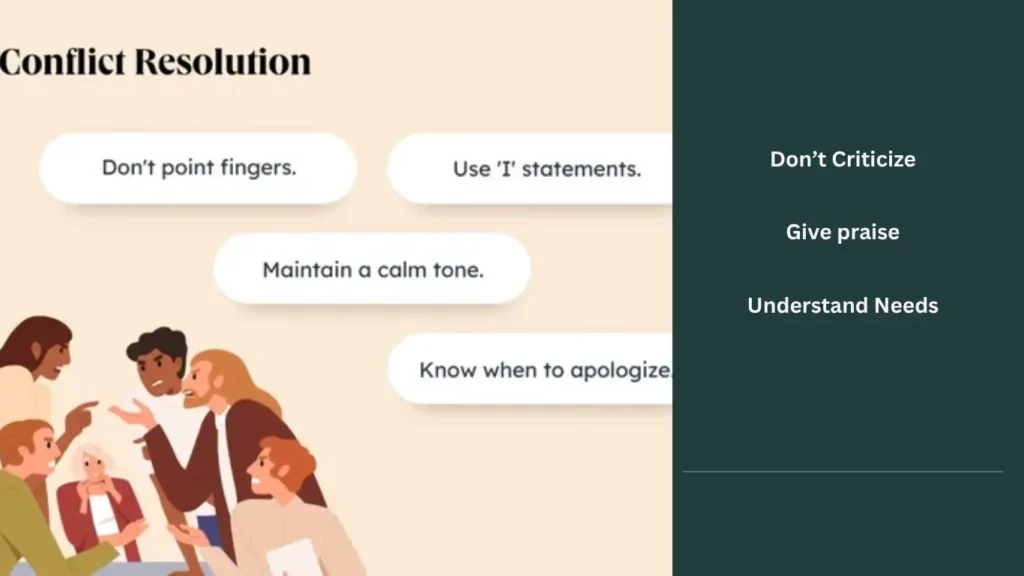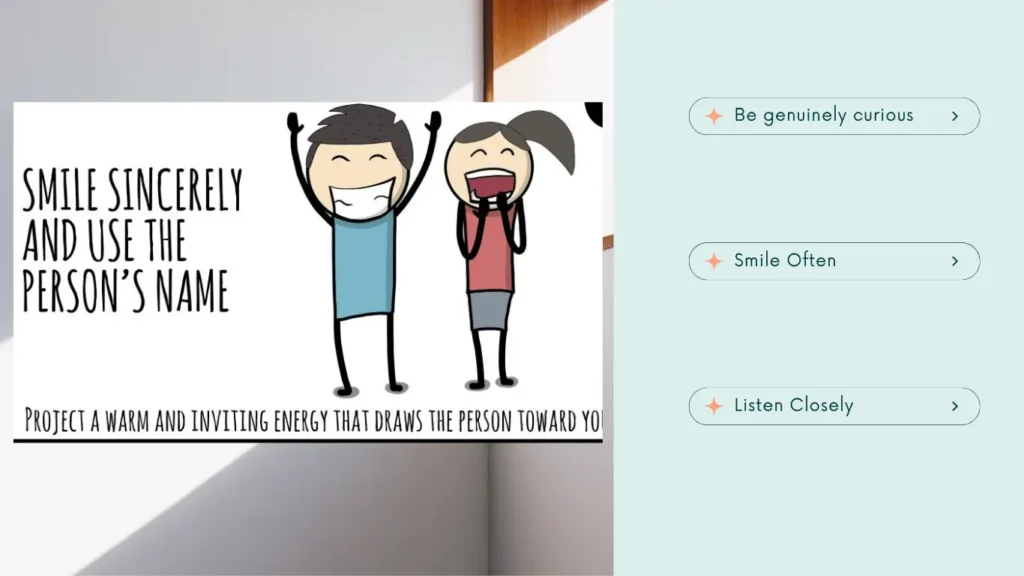
Do you ever wish that people liked you more? Have you ever wished others would hear what you have to say? Do you want to be more self-assured in your job, your family, or your daily life?
If your answer is yes, then this book is for you.
How to Win Friends and Influence People, written by Dale Carnegie, is one of the most popular self-help books ever. In fact, it has influenced many people around the globe. It can influence you as well.
The book was originally released in 1936. Even today, individuals continue to purchase it on Amazon and read it with immense interest. Why? Because the advice is effective. Most importantly, the concepts are straightforward. They are straightforward to comprehend. And when you implement them, your life becomes better.
In this blog, we will take it step by step through its teachings. You will know how to win friends, influence people, and become more successful — without being insincere or aggressive. So, let’s start!
Why This Book Still Matters
Many things have changed since 1936. But human nature hasn’t. People still crave love and respect. They want to feel important. Dale Carnegie understood this. That’s exactly why his advice works even today.
Whether you are a student, an employee, or an entrepreneur, the book teaches you to develop good relationships. And the best part? You don’t have to be wealthy. You don’t have to be a celebrity. Instead, you simply need to be kind, perceptive, and wise with people. Now, let us discuss the major lessons from the book.
Part 1: Basic Ways to Deal with People
1. Don’t Criticize, Condemn, or Complain
This is rule number one. Never start with blame. People dislike being told they’re wrong. When you criticize, they feel attacked. They go into defensive mode. They tune out. Rather, try to see their point. Be nice, patient, and relaxed. More successful relationships begin with fewer judgments.
2. Give Honest and Sincere Praise
People love to be appreciated. Even a small “Thank you” goes a long way. But be genuine. Don’t give compliments you don’t mean. Insincere compliments won’t help. When someone does something well, tell them. Tell them things like:
- “Good work on that project.”
- “I appreciated how you approached that situation.”
This develops trust and creates strong relationships.
3. Discuss What the Other Person Needs
We all talk too much about ourselves. But people are more interested in their needs than in ours. So ask yourself, “What does this person need?” Then demonstrate how your idea benefits them as well.
For instance, don’t say, “I need you to help.” Say, “If we do this together, we’ll get it done sooner, and you can have more time off.”

Read More: The Art of Reading People in Daily life
Part 2: Six Simple Ways to Make People Like You
1. Be Truly Interested in Others
First of all, don’t fake it. Be authentic. Instead, ask others about their lives. Hear their stories. Be concerned with what they have to say. As a result, people want to feel seen and valued.
So, ask:
- “What do you like to do?”
- “How was your weekend?”
Because, this makes others feel important. And they will like being around you.
2. Smile
It’s simple. It’s free. Most importantly, it’s magic. Clearly, a smile indicates you’re glad to see someone. It makes you look friendly and welcoming.
Even better, people instinctively smile back. Therefore, they feel more at ease around you. In fact, even on the phone, a smile can change your tone. Give it a try. Surely, You will notice the difference.
3. Remember Names
Someone’s name is the sweetest sound to them. So, remembering their name indicates that you care. If you tend to forget names, use tricks. Repeat the name when it’s first mentioned. Write it down. Additionally, associate it with something you know.
Then practice saying the name in a conversation:
- “Great to see you again, Sara!”
- “That’s a good point, John.”
As a result, it sounds personal and in turn, people like you more.
4. Be a Good Listener
In reality, most individuals don’t actually listen. They wait for their turn to speak. But you can differentiate by just listening. Just, look at them. While they talk, don’t interrupt. Instead, demonstrate that you care.
Ask questions like:
- “What happened after that?”
- “How did that make you feel?”
Consequently, this makes conversations richer. Moreover, it creates stronger friendships.
5. Speak in Terms of Their Interests
For example, if they love to travel, speak about where they have been. Similarly, if they like to cook, ask for recipes. People open up when they speak about things they enjoy. And if you listen, they will like conversing with you more.
6. Let Others Feel Important (And Mean It)
We all want to feel important. You can present that gift in words. Say things such as:
- “I appreciate your opinion.”
- “You’re exceptional at this.”
But always mean it. Never insincere. Lying words can ruin trust. When others feel important in your presence, they want to be around you.

Part 3: Win People to Your Way of Thinking
1. Avoid Arguments
It may be true that you can win an argument, but you can lose a friend. Often, arguments hurt feelings. They are tension-producers. Instead of fighting, find common ground. Say, “I see your point,” before you state yours. Remain calm and open.
2. Show Respect for Others’ Opinions
Even if you don’t agree, don’t say, “You’re wrong.” Say, “That’s interesting. I hadn’t thought of it that way.” As a result, this makes the conversation warm. It also demonstrates emotional intelligence.
3. Own Up to Your Mistakes Immediately
After all, nobody is perfect. Therefore, apologize immediately if you make a mistake. This demonstrates strength and honesty. People admire those who own up to their mistakes without finger-pointing.
4. Start Off on a Positive Note
Therefore, tone is important. Warmly greet every conversation. Make a positive remark. Smile. Be courteous. People listen more attentively when they feel welcome and safe.
5. Get Them to Say “Yes” Early
Ask little, simple questions first. Ones they’ll answer with a “yes.” For instance:
- “You value quality, don’t you?”
- “You want to wrap up early, don’t you?”
When someone has answered a few “yes,” they remain more receptive. They’re more likely to do so later.
6. Get Them to Talk More
Don’t monologue. Instead, allow others to share their thoughts. Allow them to clarify their perspective. When individuals are heard, they are more receptive to listening to you as well.
7. Let Them Think It’s Their Idea
People tend to support what they had a hand in creating. If you want something done, let others think it was their idea. So ask them for input. Ask, “What do you think?” or “How would you do this?” Then, they’ll feel like they own it — and will be more eager to do it.
8. Try to See From Their View
Ask yourself: “How would I feel in their place?” This builds empathy. You will react more kindly. And they will pick up on it.
9. Be Sympathetic
People occasionally just want to be heard. Use phrases like:
- “That must be tough.”
- “I see why you feel that way.”
This builds trust and assists in forming stronger relationships.
10. Bring Out Their Best Self
Remind individuals of their good side. Use uplifting words. Say:
- “You’ve always been good at finding solutions.”
- “I trust your judgment.”
As a result, they will desire to live up to your description.
11. Make Your Message Interesting
Stories are better than facts. People remember stories. They forget facts. So rather than simply telling people what to do, tell them how to do it by way of examples. Add emotion. Make it happen.
12. Provide a Challenge
Generally, individuals love objectives. Challenges motivate them. For example, use phrases like:
- “Can you beat your own record?”
- “Let’s see if we can do this in one day.”
As a result, this brings the best out of others. Then it makes work a game.
Part 4: Be a Leader Who Builds People Up
1. Begin With Praise
To begin with, start any criticism with something positive they’ve done. That way, it softens the criticism. Therefore, they will be more receptive to it.
2. Indirectly Point Out Mistakes
Say, “Let’s try it another way,” rather than, “You did it incorrectly.” This way, it spares feelings and more importantly, keeps things optimistic.
3. Discuss Your Own Mistakes
When possible, say, “I have done the same thing myself.” By doing this, it makes you human and consequently, reduces tension.
4. Ask, Don’t Order
Rather than say, “Do this,” say, “Could we do this another way?” Questions are softer than commands, you make them feel respected.
5. Protect Their Pride
Always remember, never humiliate anyone. Don’t criticize mistakes publicly. Rather, let them save face. Also, use soft words.
6. Celebrate Every Improvement
When someone improves, even slightly, notice it. Say things like, “You’re improving quickly,” or “Good job today!” Because of this, praise makes people proud. It increases motivation.
7. Give Them a Good Name to Live Up To
For example, say, “You’re known for being reliable.” Naturally, this encourages them to live up to that name. They will work harder because they want to be continued to respect.
8. Make the Problem Easy to Fix
Avoid drama. Don’t say, “This is a big issue.” Instead, say, “With a few steps, we can solve this.” As a result, this provides hope. People feel more able to do it.
9. Make Them Feel Happy to Do It
While giving instructions, explain how the task makes them grow or shine. Tell them, “You’re perfect for this. It fits your skills.” Clearly, people strive to feel good about what they’re doing.
Final Thoughts: Why You Should Read This Book Today
How to Win Friends and Influence People is more than a book. Truly, it’s a manual to living better. Most importantly, it’s a key to improved relationships. A map to increased confidence. If you want to:
- Be liked
- Be respected
- Stay remembered
So, start reading this book. Learn its simple principles. Apply them every day. As a result, You will notice the difference. Surely, others will treat you kindly and in turn, you will feel better about you.
And yes — the book is readily available. You can purchase it on Amazon today. Thousands of 5-star reviews attest to it still working. So don’t delay. Begin today. One book. Big difference.
Affiliate Disclaimer Notice:
This blog includes links that might earn me a commission. For example, I earn a small fee form Amazon if you buy something through these links. It comes at no extra cost to you.
I’ve read “How to Win Friends And Influence People” by Dale Carnegie , And I’m sharing my honest review. Furthermore, I recommend products and resources that I believe can benefit you. Everyone’s experience with the book might be different. It’s a good idea to check it out for yourself before purchasing.
Besides, using these links helps me continue to create honest and valuable content. Thank you for your support!



Leave a Reply